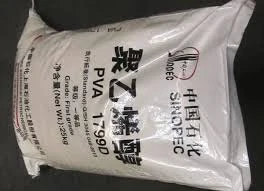Exploring Cellulose Methyl Properties, Applications, and Benefits
Cellulose is one of the most abundant natural polymers found in nature, primarily in the cell walls of plants. It is a vital component that provides structural support and is a critical resource for a variety of industries. In recent years, the modification of cellulose has gained significant attention to enhance its properties and expand its applications. One of the most prominent derivatives is methyl cellulose, commonly referred to as cellulose methyl ether or methyl cellulose (MC).
What is Methyl Cellulose?
Methyl cellulose is a chemically modified form of cellulose that is produced by reacting cellulose with methyl chloride or its derivatives. The process introduces methoxy groups (-OCH3) onto the cellulose backbone, effectively altering its physical and chemical properties. This transformation allows methyl cellulose to be soluble in water, forming a gel-like substance upon heating and reverting to a viscous solution when cooled.
Properties of Methyl Cellulose
One of the standout features of methyl cellulose is its unique thermal reversible gelation. This property means that when placed in hot water, it dissolves to form a clear solution. As the temperature cools, it thickens or gels, making it extremely useful in various applications. Other notable properties include
1. Viscosity Methyl cellulose is known for its thickening and stabilizing abilities. The viscosity can be adjusted by changing the concentration of methyl cellulose in a solution, providing versatility in its use.
2. Emulsification Methyl cellulose acts as an effective emulsifier, helping to stabilize mixtures of oil and water, which is crucial in food products and cosmetics.
3. Film-forming Ability It can create flexible films that are resistant to gas and moisture, making it valuable in packaging solutions.
Applications of Methyl Cellulose
cellulose methyl

The diverse properties of methyl cellulose translate into a wide range of applications across various industries
1. Food Industry Methyl cellulose is commonly used as a thickener, emulsifier, and stabilizer in food products such as sauces, dressings, and ice creams. It enhances the texture and mouthfeel of these products while also extending their shelf life.
2. Pharmaceuticals It serves as an excipient in drug formulations, helping to control the release of active ingredients. Additionally, methyl cellulose is utilized in various medicinal products, including tablets and capsules, due to its binding properties.
3. Cosmetics and Personal Care In cosmetics, methyl cellulose acts as a thickening agent in creams and lotions. It helps to improve product texture and can also be used in hair styling products for its film-forming ability.
4. Construction Methyl cellulose is valuable in the construction industry as an additive for concrete and mortars. It enhances workability, prevents segregation, and improves the overall performance of construction materials.
5. Biomedical Applications Due to its biocompatibility, methyl cellulose has been explored for use in drug delivery systems, wound dressings, and tissue engineering scaffolds. Its ability to form hydrogels is particularly beneficial for these applications.
Environmental Considerations
As the world becomes increasingly aware of environmental issues, the production and use of cellulose derivatives like methyl cellulose are often viewed favorably. Sourced from renewable plant materials, methyl cellulose is biodegradable and poses less risk to the environment compared to synthetic polymers. This aspect makes it an attractive alternative in various applications, supporting sustainability initiatives globally.
Conclusion
Methyl cellulose is a multifunctional derivative of cellulose that has established itself as a crucial material across multiple industries. Its unique properties, ranging from viscosity and emulsification to biocompatibility and film-forming abilities, have led to its widespread adoption in food, pharmaceuticals, cosmetics, construction, and biomedical fields. As research continues to explore new applications and enhance the properties of methyl cellulose, its importance is likely to grow, contributing to innovation and sustainability in product development.
-
The Application and Significance of Construction RdpNewsMay.19,2025
-
Industrial Grade HpmcNewsMay.19,2025
-
Building Coating Adhesive Building Coating Adhesive HpmcNewsMay.19,2025
-
Application Of Hpmc For Detergent For Detergent In DetergentsNewsMay.19,2025
-
Application Of Hpmc Cellulose In Cement-Based MaterialsNewsMay.19,2025
-
Application Of High Quality Hpmc For Construction In The Field Of ConstructionNewsMay.19,2025




